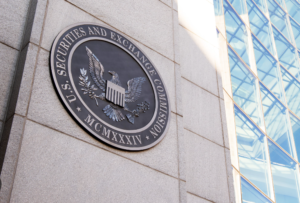$EWW $MXN $USMCA
#Mexico #Sheinbaum #Trump #Tariffs #USMCA #Markets #Trade #Peso #Stocks #Investing #Elections #Economy
Mexico’s newly elected president, Claudia Sheinbaum, is experiencing a surge in popularity domestically, largely driven by a strong wave of nationalism amid escalating trade tensions with the United States. Following former U.S. President Donald Trump’s renewed calls for tariffs on Mexican goods and stricter immigration policies, Sheinbaum has positioned herself as a staunch defender of national interests. This stance has resonated with the Mexican electorate, pushing her approval ratings above 80%, as many citizens rally around her leadership against external economic threats. While markets initially showed volatility following Trump’s tariff rhetoric, they have since stabilized as investors assess Sheinbaum’s economic strategy and Mexico’s resilience in trade negotiations. The Mexican peso ($MXN) saw fluctuations but remains relatively steady as traders weigh the long-term implications of potential tariffs on key export sectors such as automotive and agriculture, which are critical to the U.S.-Mexico-Canada Agreement ($USMCA).
Markets with significant exposure to Mexico, including the iShares MSCI Mexico ETF ($EWW), have been closely watching developments. While some investors fear increased tariffs could dampen economic growth, others see opportunities in Sheinbaum’s efforts to strengthen domestic industries and diversify trade partnerships. Her administration has signaled a commitment to modernizing infrastructure, fostering technological innovation, and reducing dependency on any single trading partner, which could bolster investor confidence in the long run. Additionally, Mexico has seen an increase in nearshoring activities, as companies looking to relocate manufacturing operations closer to the U.S. find Mexico an attractive destination. This trend has provided some insulation against potential disruptions in U.S.-Mexico trade relations. Financial analysts are also monitoring how Mexico’s central bank responds to external pressures, particularly if inflation or capital outflows become concerns due to instability in trade negotiations.
The currency markets have been particularly sensitive to shifts in U.S. policy discussions, with the peso often acting as a barometer for investor sentiment on North American trade relations. Since Trump’s tariff threats reemerged, the peso experienced short-term depreciation but regained ground as Sheinbaum reaffirmed her commitment to defending the country’s economic stability. Mexican corporations with heavy reliance on U.S. exports have adjusted strategies accordingly, with some manufacturers considering alternative supply chain routes or lobbying efforts to mitigate potential trade disruptions. U.S.-based firms with substantial Mexican operations, including automotive giants and industrial manufacturers, are navigating uncertain waters, prompting them to reassess pricing strategies and supply chain logistics. For equity markets, reaction has been mixed, with some investors appreciating Sheinbaum’s proactive trade diplomacy while others remain uncertain about the durability of Mexico’s economic defenses against U.S. policy shifts.
As Sheinbaum solidifies her administration’s economic approach, attention now turns to how she handles ongoing negotiations with Washington. If trade tensions persist, Mexico’s economic growth projections could be revised downward, posing risks to foreign direct investment (FDI) inflows. Conversely, if Sheinbaum successfully positions Mexico as a stable and reliable trade partner while reinforcing economic independence, investors may find renewed confidence in Mexican assets. The bilateral relationship with the U.S. under a potential Trump presidency will be closely scrutinized, as any sudden policy shifts could disrupt trade flows. However, Sheinbaum’s rising domestic support strengthens her negotiating position, potentially allowing Mexico to push back against unfavorable trade terms. As markets digest these developments, investors will continue assessing Sheinbaum’s leadership and the overall trajectory of Mexico’s economy in an increasingly complex geopolitical landscape.











Comments are closed.